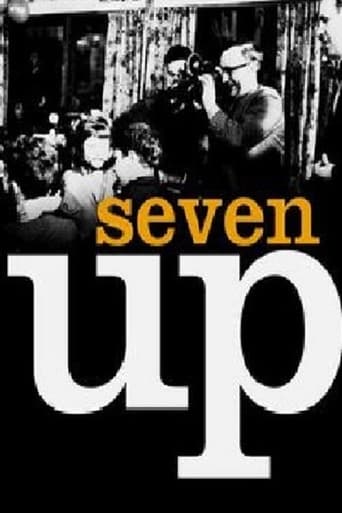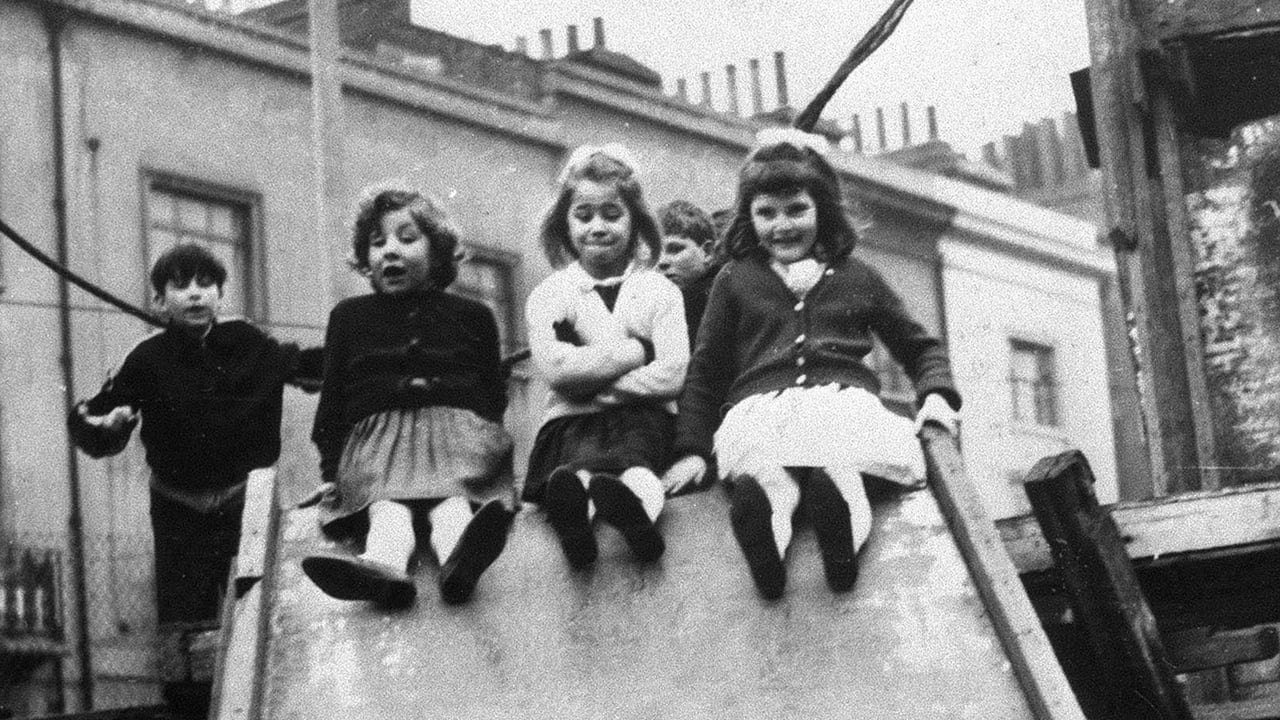KissEnglishPasto
..........................................................from Pasto,Colombia...Via: L.A. CA., CALI, COLOMBIA...and ORLANDO, FLDefined as a documentary, this seems, to me at least, closer to a reality TV show in its focus, execution and style. Certainly, for a project conceived and initiated about half a century ago, it was, undoubtedly, way ahead of its time.The basic premise, in a nutshell, was to select a small group of kids that represented a cross-section of British society in the early 60's. The children were all to be the same age: 7. All of them would be interviewed and filmed answering the same set of questions and participating in the same activities every seven years. This every seven year "snapshot" would continue until the subjects were well into middle age.At the beginning, the producers state their primary intention as "thusly allowing the viewer to watch the development of a group of children from varied backgrounds and distinct social "classes", and draw their own conclusions"....Is it just me, or does anyone else hear strains of John Lennon's "Working Class Hero" faintly in the background? All in all, I must admit this UK doc really brings out the latent voyeur in you...(or at least in me, perhaps!) Directed by Michael Apted, what I found to be of most interest, to be brutally honest, were the inherent biases and preconceptions of the interviewers/producers/director as evidenced by both their choice of questions and subtle differences in the handling/presentation of the screen dynamic of the interviews themselves...Or perhaps the inherent biases and preconceptions are really mine?!? My suggestion: Watch Seven Up/Seven Plus Seven and decide for yourself. 9*.....ENJOY/DISFRUTELA!
gentendo
The filmmaker's ideological argument is one that is pervasive throughout the film: "Give me the child until he is 7 and I will give you the man." Set in London England, the director exposes this argument by interviewing an average group of elementary school children. His questions include a variety of topics that allow the viewer to become better acquainted with the thoughts and desires of what these children hope to become. The mere fact that his subject is elementary school children demonstrates his ability to fulfill one of the rules of documentary film-making: giving a voice to the voiceless. These children under normal circumstances would not have a voice in the world at such a young age. They are not celebrities; they are just like any other childingenuously funny, naïve, and inquisitive. Most of them aspire to become great things (i.e. astronauts, teachers); however, the director seems to implicitly suggest that given the immaturity of their present beliefs as seven-year-old children, those dreams they wish to fulfill are idealistically unattainable. How? Because given his argument, he suggests that because these particular children are "fully developed" and still immature at the age of seven, he presupposes that the nation of England ought to greatly fear the rising generation and what skills they will lack in the world. The last line of the film implicitly demonstrates this, "We have now seen a look at what the nation of England is in store for and what potential there lies within." Observing how the audience and myself was laughing at the naivety of these children (as I'm sure was intended to show how ignorant they are) I personally felt it was unfair for the director to cast such judgment on them because I don't believe a child is fully developed at the age of seven. One cannot presuppose such a threat to a nation based off what a child's inclinations and aspirations are at such a young age. Why? Because there are many factors that can and do contribute in refining a child's behavior into something better through a space of time and development. The director seemed to suggest that such a space for developing would not be necessary to determine who they would become in the future, namely, bums.There are several filmic techniques that the director used to support his argument. First, he asked specific questions that he knew would exploit the children through their own responses: "What do you do after you get home from school?" to which most of the children responded, "Watch TV!" The implication here of course suggests that their lack of diligence and acquiescence to passivity and mind-numbing entertainment would cause them to become slaves inside of Plato's cavesomething not fit for a future nation to thrive on. Second, he captures on film moments of the children fighting with each other. This is more of an explicit ideology of showing that violence and aggression reign supreme amongst such a young crowd as this. The implicit ideology seems to suggest that if these children are fighting with their hands and feet now, how will they fight in the future?with guns, knives? Overall, I felt this documentary was promoting activism on behalf of the parentshow to discipline your children better! I felt this was rather ridiculous because they are only childrenthere's still plenty of time for them to grow and develop into more responsible beings.
chucklezone
I was interested to hear an interview with Michael Apted. I learned that the children selected at age 7 were those who were articulate and able to communicate clearly. The heads of various schools were asked to select their brightest and best for the project. As a social commentary, it is very interesting to see how they have developed over the years. Also, the various opinions and levels of participation from those around them, for example wives and husbands. By their very participation and reflection during the filming the participants have been altered. Clearly one participant felt quite misrepresented and wanted to set the record straight. In that sense, the film makers are not passive observers and some bias is inevitable. Despite this, it is a convincing personal commentary on more than 4 decades of British life.
metalgoth
I've read about this series elsewhere and was always curious to see it. Thanks to an internet movie rental chain I've now seen 7 Up and 7 + 7, and the rest of the series is queued up and ready to ship. I can't wait.Viewers who are not used to the various English accents will likely be struggling to understand what some of the kids are saying in the first movie, 7 Up, but it's a short film, and deserves repeated viewing. My vague memories of previous reviews of this series suggest that this may be the most lighthearted of the series. While it is fascinating for many reasons, it is also vastly enjoyable just for the experience of the 7 year-olds' high spirits and humor.It's jarring when you get your first look at 7 + 7, which revisits most of the kids 7 years later. Their individuality, only hinted at in the first movie, is obvious in these now-14 year-olds. As a parent I feel that familiar combination of the sadness at the loss of the child and anticipation of the future adult. Here we run through this in a matter of minutes.As it stands now, the series goes as far as 42 Up, somehow turning these frolicking little kids into my peers in the space of a few hours. (I've always been a sucker for special effects.) This series is unlike anything that came before it, and while a quick scan of titles suggests that it's been imitated since, I'm waiting to see what happens to this particular group.


 AD
AD
